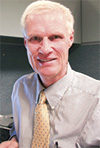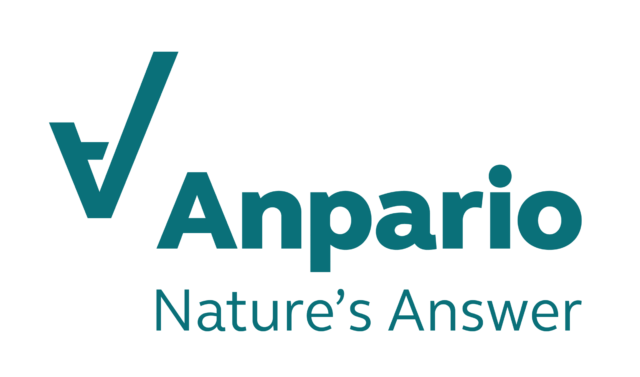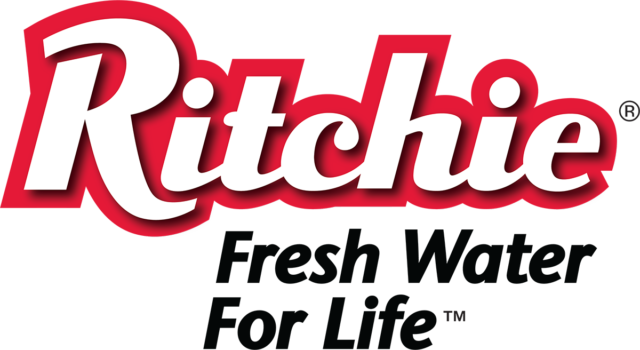Editor’s note: This is the first part of a two-part series. I have written hundreds of columns for Progressive Dairyman over the course of 23 years. During this time I have been a public servant, with half of these years at Oregon State University Extension and the other half with the USDA – Natural Resources Conservation Service.
About five years of this time span were spent overseas in about 12 countries, with four long-term assignments in Afghanistan, Iraq, Pakistan and South Sudan, Africa.
I am writing this article on December 31, 2014, my final day as a U.S. government employee. I am leaving an agency I love: NRCS. I turned 62 years old a couple weeks ago, so I submitted my retirement papers. I am moving home to a farm in Powell Butte, Oregon. My airplane, Mooney N201NJ, is already based at Prineville, Oregon.
I often write of composing an authentic life. That we bring meaning to it rather than waiting for meaning to be given to us. I returned home to East Lansing, Michigan, from South Sudan in June 2012, joining the ecological sciences staff at the NRCS state office. About 14 months later, I was laterally transferred to New York NRCS, working in the New York City Watershed Program as a planner. I have been here just 13 months.
Much of an authentic life is based on contributing to the mission in a meaningful manner. We may write this another way … the inner journey of reconciliation with the outer world is only fulfilled when we are able, through self-reflection, to bring meaning to our work.
I admit to failing this test since my return from Africa. Certainly the years spent overseas were profoundly meaningful to me. I would go back and do them all over again. The single best year of my entire 24 years of public service was the 12 months spent in Afghanistan as assigned to a U.S. Army Civil Affairs Unit at Bagram Air Field. Next to this are my 18 months in Iraq and then my tour in South Sudan. I wrote many articles from these places.
I am certainly changed from them. Every soldier or diplomat coming home from these kinds of assignments is changed. One of the common outcomes of change is the difficulty of entering the domestic workplace. I have struggled. Perhaps not in the context of wanting to go back overseas but in the level of bureaucracy here at home.
Much of this struggle includes the increasing level of complexity that guides how we are to do our work. I just cannot make sense of it. Many rules and policies make no sense and seem to be driven by an overreaction to an isolated event.
May I be clear and write that I love the agency I work for, NRCS. While today is my final day as an employee, I use the word “sad” to best describe how I feel about this decision to leave. Why?
I know I have something to give to the mission; my current work at this duty station is not right for me. This is not the fault of anyone, to be clear. Rather it is one of finding a good fit so a person can fulfill and complete the work that not only accomplishes objectives and reaches goals but also is meaningful. Only we know if the work is meaningful. I found it overseas, but since returning, I have not.
And I am suggesting that if a person is not completing meaningful work, then he or she is not bringing enough of a contribution to the mission. Simply written, this is me. I am not embarrassed by this statement as a form of personal reflection and reconciliation. Part of any authentic life is knowing and admitting the reality of one’s life, and in this case, my own professional career.
Here are five important lessons I have learned in this 24-year public service journey.
- One, I never imagined growing up in the little town of Parkdale, Oregon, and entering the dairy farming business in 1989, that I would have had the very public service career that I have had … especially working overseas in difficult assignments and challenging locations. I am deeply grateful for those responsible for placing me in these positions.
- Two, I have 11 years of formal education earned. Four at Cal Poly, two at the University of Wisconsin – Madison and five at Michigan State University earning my Ph.D. in soil physics. The return on investment of these years, especially the soil physics work at MSU, has been extraordinary. Going back to school and earning that terminal degree was one of the best decisions I ever made.
- Three, understanding the difference between knowledge and wisdom helps keep our ego in check. How? Knowledge is important, certainly, by understanding the physical world and explaining it in a way we and others can understand. Our universities help students understand and therefore bring knowledge from data (plural).
Much of the sciences are based in mathematics and measurements; these provide the tools and data so that knowledge is gained. Wisdom, though, is something beyond knowledge. As a person of almost any craft, including farming, enters the latter stages of life, wisdom is gained in the form of insight and reflection.
We cannot teach this in a classroom or in a field. It is something that is learned inductively, over a long period of time, with much internal reflection. This includes two concepts: that much of what we know can be simplified with wisdom, and secondly, the use of induction or intuition comes into play.
We just know without having to measure something. Much of this stage of life is being so comfortable with wisdom that we do not have to always try to be “the smartest person in the room.” Rather we are quiet and wait until the right time to speak up and say what needs to be said in simple terms using language everyone can understand.
This, then, is a way to keep the ego out of our demeanor. We do not have to tell anyone how much knowledge we think we have, rather it is through the use of wisdom that it speaks for itself.
- Four, I began thinking about the humanities while overseas. I was there in a technical role but I did not have the tools to understand the culture, the people, the roles and behaviors of those I engaged with. My colleagues faced the same dilemma.
Part of my growth as a scientist has been to educate myself in the realm of the human environment. We know the family farm is really the physical attributes whereas the farm family is much of the human environment.
Yes, I do spend a lot of time now thinking about the art of being a scientist, and this ties in nicely with what the term wisdom really means. There is an art component in our craft … and it is comprised of wisdom and the skill of trying to understand the human environment.
- Five, there is much merit of aging in a way that emphasizes empathy, compassion and humility. Being grateful for our station in life, understanding the plight of others, thinking about the human environment in their terms and presenting ourselves as helpful and kind rather than overtly domineering all make for a civilized relationship.
So many times I watch others fail in these important attributes when they have so much to offer someone else. I think much of this is rooted in our education system, especially if the graduate has spent nearly all course time in the sciences and not much in the arts or humanities. I often wished I had taken some rural sociology courses at Wisconsin or Michigan State. Maybe there are some online courses for us …
I depart in a few hours now for the drive westbound, all the way to central Oregon. No, I do not know what is next other than flying my airplane, growing alfalfa under irrigation pivots, riding horses and running a few more marathons.
And I plan on writing, too. PD

Mike Gangwer
Agricultural Scientist








